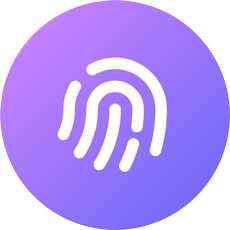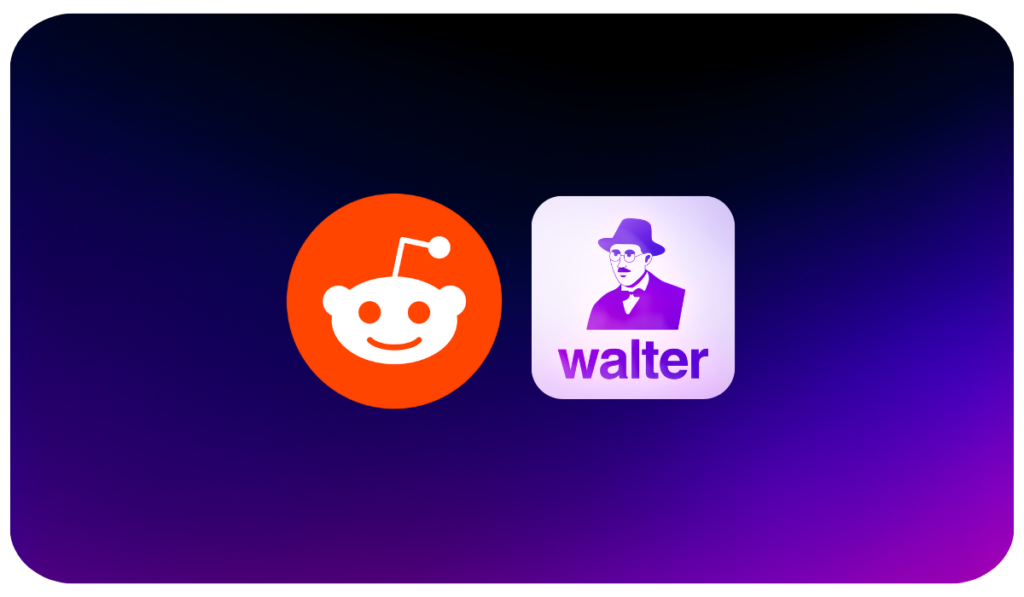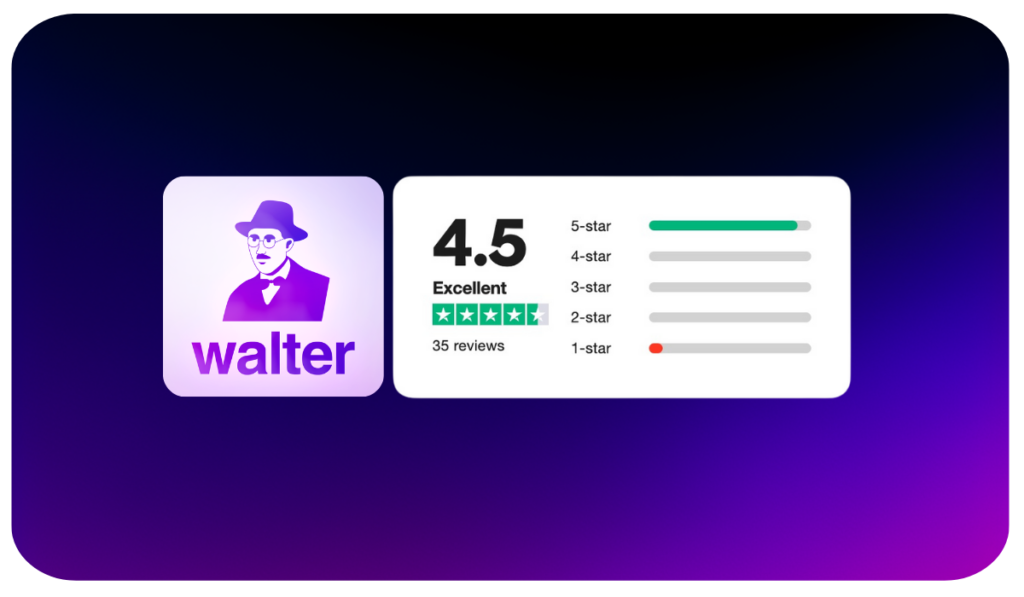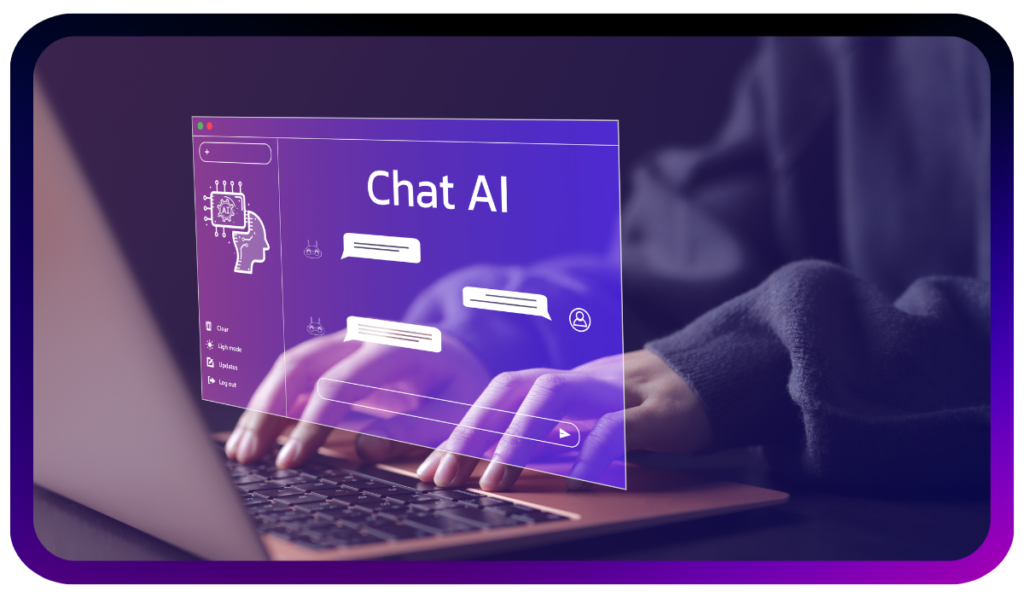With AI-generated text becoming more ubiquitous than ever, the ability to tell human and AI prose apart is as important as ever. Identifying the source of your writing, or any other content online for that matter, whether it’s you, or the next person with a computer, writer’s background, or professional experience, is a necessary aspect of acknowledging your work in a world filled with AI-generated content. AI tools like ChatGPT are common, but the outputs have distinct tells, such as repeated phrases, overly formal transitions, and simply patterned sentences.
The language patterns employed in AI-generated text are often formulaic, making this detection easier. Services such as Walter Writes AI, which refine AI-generated text, make it readable, less detectable by algorithms, and more human. However, in this blog, we will discuss the words and phrases to avoid while using ChatGPT in 2025 and how to make sure AI-generated content sounds natural, engaging, and original.
Many people ask, “What words does ChatGPT like to use?” or “What words does ChatGPT use a lot?” AI-generated content relies on certain common ChatGPT words that can make writing sound unnatural. By understanding these patterns, you can refine and enhance your writing to avoid AI detection and improve readability.
How AI & ChatGPT Generate Words and Phrases
Why AI Uses Predictable Words & Phrases
Unlike human writers, AI doesn’t “think” in the traditional sense. Instead, it predicts words based on statistical probabilities. AI language models like ChatGPT generate text by analyzing patterns in massive datasets, leading to writing that is often clear and grammatically correct but also rigid and unnatural.
AI prefers structured, formal language because it aims for clarity and consistency. It tends to avoid risk, making it less likely to introduce colloquial phrases, slang, or creative deviations that human writers naturally use. This reliance on probability means certain words and transitions appear more frequently in AI-generated content than in human writing.
For example, phrases like “It is worth noting that…” or “One might argue that…” are common in AI responses because they offer neutral, balanced tones. However, these phrases are rarely used in casual, everyday writing.
Many people wonder, “How many words can ChatGPT take?” or “What words does AI use a lot?” ChatGPT can process thousands of words at a time, but within that, it relies on commonly used AI phrases and structured sentence patterns that can make writing sound unnatural.
How ChatGPT’s Vocabulary Differs from Human Writing
Human writing is full of variations, nuance, and unpredictability. We mix sentence structures, use idiomatic expressions, and incorporate emotional undertones that make our writing more engaging. ChatGPT, on the other hand, tends to repeat specific patterns, leading to a robotic or overly structured feel.
Some key differences between AI and human writing include:
- Sentence Variation: Humans naturally use varied sentence structures, while AI tends to follow repetitive patterns.
- Word Choice: AI prefers neutral, overly polite, or academic words that may feel unnatural.
- Lack of Spontaneity: AI-generated text is methodical, while human writing can be more dynamic and free-flowing.
- Predictable Transitions: AI often relies on transitions like “Furthermore” and “Moreover,” which can sound unnatural in some contexts.
By learning what words ChatGPT uses a lot, you can recognize AI-generated writing more easily and refine your text to avoid detection.
Most Common Words & Phrases Used by ChatGPT in 2025
Overused AI Words That Give Away AI-Generated Content
Certain words and phrases are overly relied upon in AI-generated content. These words often signal AI writing because they are not as commonly used in everyday human communication.
- “However” – AI loves structured transitions, but overusing “however” makes writing sound robotic.
- “In conclusion” – AI-generated text frequently ends with this phrase, making it a red flag.
- “Furthermore” / “Additionally” – While correct, these formal transitions often make AI text sound rigid.
- “Significant” / “Notably” – Common in AI-generated academic writing.
- “It is important to note that…” – A phrase that sounds polished but is rarely used naturally.
These words are part of the most common ChatGPT words and can often be flagged by AI detection tools.
Common AI Phrases That Sound Unnatural
AI-generated text often includes phrases that are technically correct but feel out of place in conversational or casual writing.
- “It is worth noting that…”
- “One might argue that…”
- “In light of this information…”
- “In today’s fast-paced world…”
- “As previously mentioned…”
These are common AI words and phrases that make AI-generated text easy to identify. What words does ChatGPT use that give it away? Overuse of these structured phrases is a key indicator.
Words AI Overuses in Academic & Business Writing
AI-generated academic and business texts often contain overly structured and formal language. Some commonly overused words include:
- Formal Transitions: “Moreover,” “Consequently,” “Thus.”
- Overused Adjectives: “Crucial,” “Pivotal,” “Comprehensive.”
- Buzzwords: “Leverage,” “Optimize,” “Facilitate.”
Overusing these words can make writing sound generic and impersonal.
How to Detect AI-Written Content Based on Word Choice
AI Detection Tools That Identify Overused AI Words
Several AI detection tools analyze text for predictable patterns and word choices. Some of the most popular ones include:
- GPTZero – Detects AI-generated text using sentence variation analysis.
- Turnitin AI Detection – Flags AI-written content in academic papers.
- Originality.ai – Helps identify AI-generated business and marketing content.
Sentence Patterns That Indicate AI Writing
AI-generated text tends to follow predictable patterns that make it easier to detect. Here are some key characteristics:
- Overuse of Passive Voice – “It has been stated that…” instead of “Experts state that…”
- Lack of Contractions – “It is” instead of “It’s.”
- Repetitive Sentence Structures – AI often follows similar patterns in sentence length and structure, making the writing sound mechanical.
How to Rewrite AI-Generated Text to Sound More Human
Avoiding Common AI-Language & Improving Flow
To make AI-generated text sound more natural, consider these strategies:
- Replace predictable phrases with conversational alternatives.
- Vary sentence structures to create a more engaging flow.
- Use contractions and informal language where appropriate.
How Walter Writes AI Helps Improve AI-Generated Content
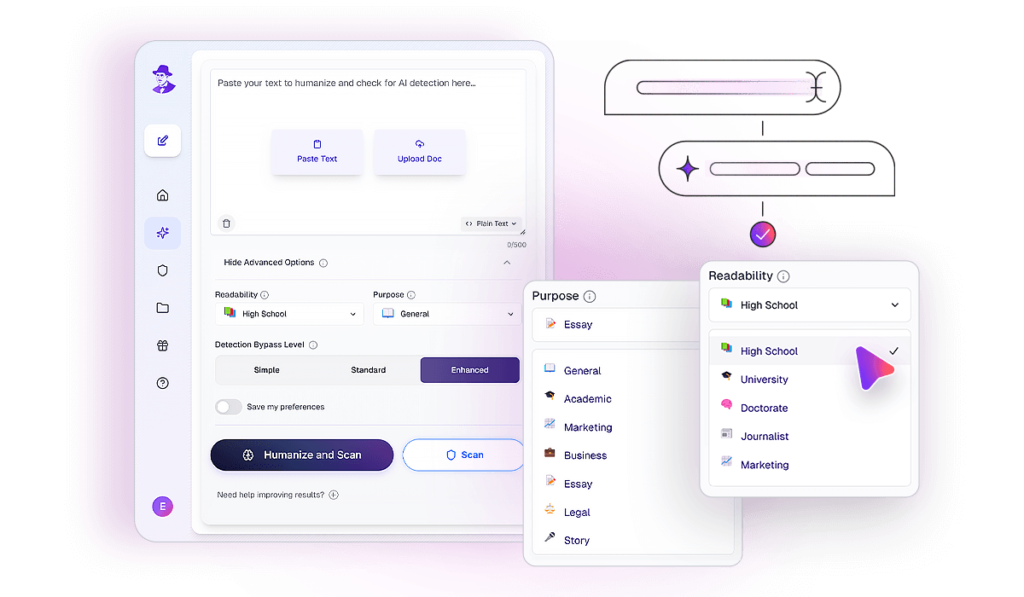
Walter Writes AI refines AI-generated text by:
- Replacing overused words and transitions with varied alternatives.
- Adjusting sentence structures to enhance readability.
- Eliminating robotic phrasing to create a more natural tone.
Conclusion – How to Avoid Common AI Words & Write More Naturally
AI-generated text often relies on structured, formal, and predictable language. By learning what words ChatGPT uses a lot, replacing them with more natural alternatives, and varying sentence structures, you can make your writing more engaging and human-like.
Walter Writes AI provides an effective solution for refining AI-generated text, making it more natural and undetectable. Try Walter Writes today to elevate your writing!
